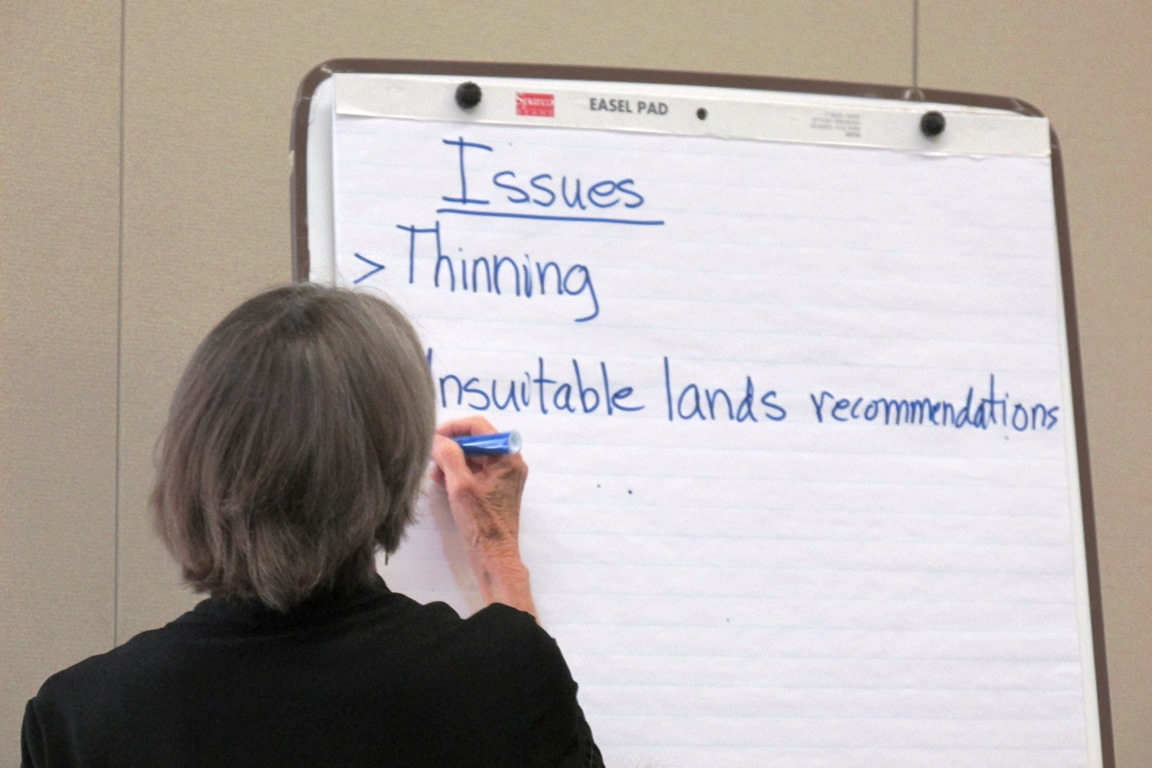
The Tongass Advisory Committee has been working for almost a year on a set of recommendations to help the U.S. Forest Service transition to second-growth timber. At a meeting Wednesday in Ketchikan, members said they are confident their recommendations would lead to success, but they aren’t confident that the Forest Service will take those recommendations to heart.
The TAC is supposed to talk about how best to move away from logging old-growth forest, replacing that with second-growth. The overhaul includes engaging the timber industry, environmentalists, and neighboring land and sawmill owners. Committee members think it’s going to be a hard sell.
“They’re so entrenched in their ways, and there are so many rules that they have to follow,” says Carol Rushmore, economic development director for the City of Wrangell and a member of the committee. “Can what we’re asking actually be done? And therein lies my frustration and my doubts.”
Another member, Brian McNitt, with the Alaska Conservation Foundation, says he also isn’t sure how the Forest Service might be able to adapt to the recommendations.
“Unless there is a very clear intent to change, or a real clear on what we’re OK with on old growth, I don’t think we’re going to see a change,” McNitt says.
Robert Bonnie from the U.S. Department of Agriculture traveled to Ketchikan for the meeting. He says he understands the skepticism, but the agency has gotten the message loud and clear. He says officials want to work with the committee to improve the system.
“We take that very seriously,” Bonnie said.
The Forest Service is going to have to make some changes, and they’re already working toward them, says Alaska Regional Forester Beth Pendleton. She says the agency is working with the State of Alaska and private landholders to discuss restoration projects, and collaboration on timber.
The big goal everyone said they support is maintaining what’s left of the Southeast Alaska logging industry during the transition.
